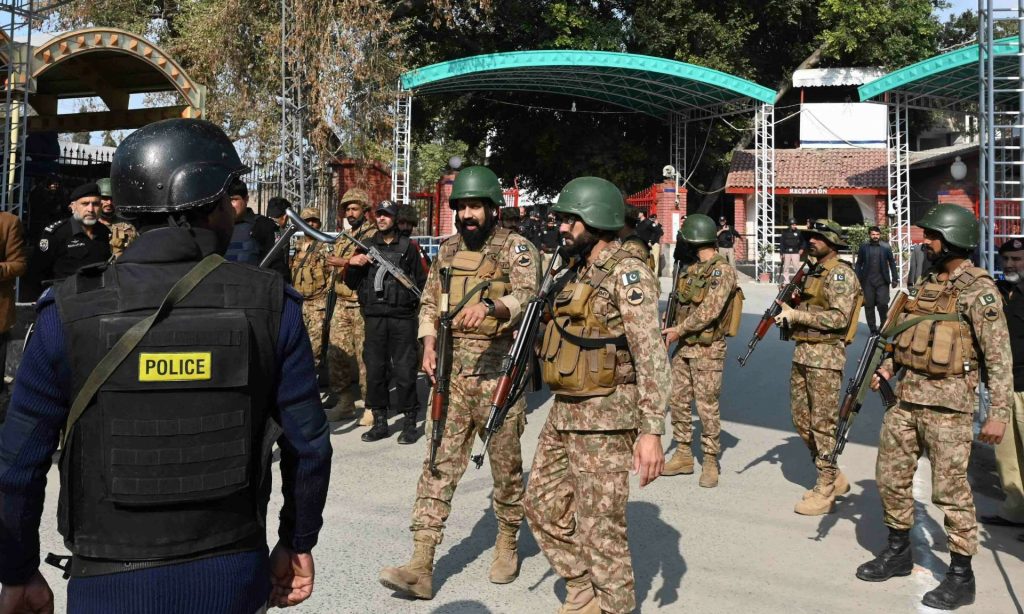Law enforcement agencies in Pakistan remain vigilant in their commitment to dismantle terrorist networks through coordinated intelligence and patient, sustained operations. A recent breakthrough exposed an alarming infiltration within the police force, shedding light on the devastating impact of extremist ideologies within civil institutions.
The recent arrest of Constable Muhammad Wali, who was affiliated with the terrorist group Fitnah al-Khawarij’s sub-organization Jamaat-ul-Ahrar, has raised profound concerns about security.
Wali is accused of facilitating the horrific suicide bombing at Peshawar Police Lines on January 30, 2023. The blast resulted in the tragic deaths of 101 individuals and left 223 injured. For his role, Wali allegedly received Rs. 200,000.
Constable Wali joined the police force in 2019, but his association with Jamaat-ul-Ahrar began two years later in 2021. According to his confession, he was contacted by Junaid, a commander of Jamaat-ul-Ahrar, who convinced him to join their cause.
Wali then traveled through Quetta to Afghanistan, where he met Jamaat-ul-Ahrar leaders Salehuddin and Makram Khorasani, pledging allegiance to the organization and receiving twenty thousand rupees.
On his return, Wali was briefly detained by Afghan authorities, but was soon released due to the intervention of a Jamaat-ul-Ahrar commander.
From then on, he became deeply involved in terrorist activities within Pakistan, using his position in the police force to assist in carrying out attacks. His statement detailed his activities and demonstrated the lengths he went to in order to aid Jamaat-ul-Ahrar’s cause.
Wali recounted his involvement in various acts of terror. In early January 2023, he shared maps and photographs of the Police Lines with Junaid over encrypted messaging apps.
On January 30, he escorted an individual armed with a suicide vest to the target location, who then carried out the tragic blast. Wali later messaged Junaid to confirm the operation’s success.
Beyond his role in the Peshawar Police Lines attack, Wali facilitated the transfer of explosives, suicide vests, and firearms from Afghanistan into Pakistan.
His statement also mentioned his participation in a series of attacks, including a grenade attack at Gyalni Market, delivering IEDs for blasts on Warsak Road, and supplying weapons for targeted assassinations.
In June 2024, he was involved in orchestrating another planned suicide attack, hiding jackets at various locations and documenting the process for his handlers.
The disturbing revelations about Wali’s deep involvement underscore the need for heightened vigilance within law enforcement agencies.
His infiltration is a sobering reminder of the risks posed when extremists manage to penetrate civil institutions, gaining access to intelligence and resources that enable further destabilization.
After the Peshawar attack, a wave of anti-military sentiment circulated on social media, attempting to exploit public sorrow to undermine the trust between the Pakistani people and their armed forces.
This campaign sought to spread baseless propaganda, adding to the challenges faced by the country’s security agencies.
Despite such challenges, Pakistan’s law enforcement and intelligence agencies remain committed to rooting out both internal and external threats. The nation’s security forces, with the support of the public, stand resolute against terrorism and are determined to thwart the ambitions of extremist groups attempting to destabilize Pakistan. This recent success demonstrates that even in the face of infiltration, they continue to pursue justice and protect the country from those who aim to harm it from within.


